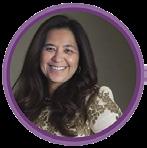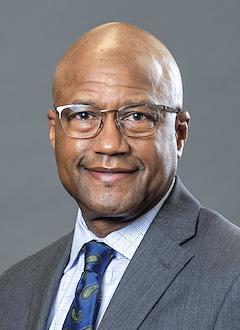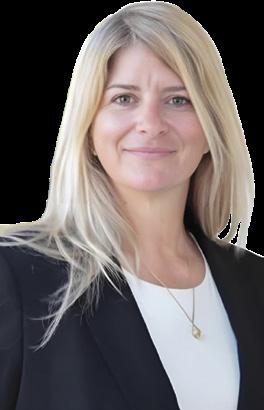& DENTAL
PROFESSIONALS OF EAST COUNTY



‘You don’t have to pay a lot of money for good skin care’
Sunscreen should be worn every day, even on cloudy or foggy days, with reapplication every two hours, local dermatologists advise.
“A study was done to see how much sunscreen people were using, and it showed that people used about less than a third of what they should be using to cover the area,” said Dr. Robert Beer, dermatologist at Balfour Dermatology, 2221 Balfour Road in Brentwood.
Beer added that he joins the American Academy of Dermatology in recommending an SPF (Sun Protection Factor) of 25 or above. “You want to use a broad spectrum, which covers UVA (aging) light and UVB (burning) light. Almost all sunscreens today cover those.”
“If you have a chance to use a higher SPF it is probably a little better, but it’s not worth paying more per SPF dollar. For instance, a few years ago an SPF 25 was $25, an SPF 50 was

$50 and an SPF 80 was $80. That is when the American Academy of Dermatology said they are not that much better. They are a little better, like $5 or $10 more,” Beer said. Beer compared the types of SPF to toothpaste. “Even if you don’t have the absolute best brand of toothpaste that day, it’s still important to brush your teeth. It’s good to talk about what the best brand of sunscreen is, but at the end of the day make sure you’re wearing sunscreen because it’s really important.”
When using moisturizers, Beer said it depends on the person’s type of skin. “Some
people need a moisturizer and some people don’t. Retinol and anti-aging creams can make your skin a little more sun-sensitive for some people, but not for everyone. Retinol and a lot of anti-aging products are inactivated by the sun. If you are using an anti-aging product, a lot of them are only used at night and some are day and night. If you use the anti-aging product in the morning and then you did not put sunscreen on, when you go out or even turn on the computer, you may be inactivating your wrinkle or preventative product.”
Beer recommends putting anti-aging cream first, then sunscreen.

• Lifts up to 660 Lbs.
• Lifts the end user from the floor.
• Smooth stop and go.
• Various track options make it possible to access all areas.
• Emergency down and emergency stop easily accessible.
• Manual control and/or control panel.
• Infra-red wireless remote control available.
• Custom slings available for all sizes and preferences.


He explained an anti-aging product in the works called exosomes. “Exosomes are something that instead of a growth factor, which is what some of the anti-aging creams are right now. Exosomes, not activated by the sun, are able to promote healthy skin and prevent aging.”
The next generation of wrinkle creams won’t be inactivated by the sun, he said.
“It is important to try different products and find something that is right for you and your skin type. It can be helpful to talk to an esthetician or dermatologist if unsure of your skin type. You don’t have to pay a lot of money for good skin care. Sometimes people get hyped up into using very expensive products, and usually there are much cheaper alternatives that can work just as good or sometimes even a lot better,” Beer said.
Some natural botanical products, such as a fern leaf extract, can protect skin from the sun. “They are not there to replace sunscreen, but they are there to help your body adapt and prevent the damage that oxidation and the sun rays do,” he added.
For more information, contact Balfour Dermatology, Dr. Robert Beer at 2221 Balfour Road, Unit A, in Brentwood. Call 925-2409116, or visit skinquestion.com.
Or visit Golden State Dermatology at 1200 Central Blvd. Unit D in Brentwood. Call 925-633-7988 or visit goldenstatedermatology.com.

Families in Brentwood now have a one-stop destination for growing smiles. Alameda Pediatric Dentistry is proud to announce that its Brentwood office is expanding services to include orthodontics alongside its trusted pediatric dental care.
By offering both specialties under one roof, the practice provides seamless, coordinated care. Parents appreciate the convenience of working with one trusted team for all their child’s dental needs, while kids and teens benefit from continuity of care as they grow.
A child’s early dental experiences shape their relationship with oral health. That’s why the Brentwood office is designed to make every visit fun, positive, and free of stress. The caring team helps kids feel at ease while parents gain peace of mind knowing their child’s dental health is in good hands. With preventive care, restorative treatment, and orthodontics, families are guided through every stage of dental development, from babies to age 26. Why early visits matter
A dental exam for a one-year-old is a vital step in nurturing their oral health journey. This initial visit not only assesses oral development

Orthodontics is about more than straight teeth. The first dental visit is really about creating a dental home for the child, which fosters a continuous relationship with the dentist focused on prevention and education.
but also plays a crucial role in recognizing potential issues early on. It empowers parents with the knowledge to care for their child’s teeth and gums, laying the groundwork for a lifetime of healthy smiles.
“The first dental visit is really about creating a dental home for the child, which fosters a continuous relationship with the dentist focused on prevention and education,” local pediatric dentist Dr. LaJuan Hall says. Parents
can feel confident knowing their children are supported by a team dedicated to education, high-quality care, and long-term health.
Orthodontics Now in Brentwood
An experienced orthodontist, Dr. Holly Jafarzade, has joined the team at Alameda Pediatric Dentistry & Orthodontics in Brentwood. Whether a child needs an early orthodontic evaluation, a teen is ready for braces, or a young adult is interested in align-
ers, the Brentwood team offers personalized plans for every stage.
Orthodontics is about more than straight teeth. It’s about oral health, function, and confidence. Early evaluations can identify potential concerns and help prevent more complex issues down the road. Alameda Pediatric Dentistry & Orthodontics combines advanced technology with a caring approach to ensure treatment is effective and comfortable. Complimentary first visits for new patients
The practice is proud to offer complimentary orthodontic consultations. Families can explore options, ask questions, and gain a clear understanding of what to expect. The practice also provides a complimentary first dental visit for new patients younger than 24 months old. This special offer reflects the practice’s mission to make high-quality dental care accessible from the start.
For Brentwood families, the message is simple: healthy, confident smiles start here. Schedule a complimentary visit today and discover how Alameda Pediatric Dentistry & Orthodontics can help your family maintain healthy smiles for a lifetime!
For details, visit their office at 4510 O’Hara Ave. in Brentwood, or contact them at 925-516-4107 or www.APDsmile.com.
-Advertorial

bout 53 percent of adults watch TV or stream content online before going to bed, while adults also snack on an average of 3.9 nights every week before bedtime. This data from The Sleep Foundation shows that certain habits, such as watching television, being on mobile devices, snacking, and other activities are linked to people getting less sleep and going to bed later, along with having trouble falling and staying asleep.
Late-night snacking/eating
In general, it’s recommended not to eat before bed, said Sutter Health psychiatrist Dr. Raheel Khan. “There are multiple concerns associated with late-night eating including basics such as when it’s late night, the decisions we make on what to eat are not wise. People tend to eat junk food.”
When people eat late at night, people are going against their body’s circadian rhythm, a body’s 24-hour internal clock that controls the body’s sleep-wake cycle, according to the Cleveland Clinic.
This can also have an effect on insulin sensi-
tivity. People are more sensitive in the morning on purpose, which according to the Cleveland Clinic, is to help fuel bodies, to get people moving and get them through the day. But insulin resistance increases at night, resulting in the extra calories coming from a late-night meal or snack stored as fat while one sleeps instead of being burned throughout the day.
“The quality of sleep is also affected,” Khan said. “High- calorie meals, such as those high in fat and carbs, can make it harder to fall asleep. However, high-calorie meals four hours before bedtime can help you fall asleep faster. Also, eating late can cause people to wake up in the middle of the night.”
Khan added that people can also develop heartburn from eating too close to bedtime, as when a person lays down right after eating, the contents of the stomach can press against the lower esophageal sphincter, causing irritation and acid reflux.
Eating close to bedtime can also lead to Gastroesophageal Reflux Disease (GERD), causing disruptions in sleep as well, according to local registered nurse Chris Cosper. Cosper recommended avoiding spicy foods and foods high in fat and acidity, along with alcohol and caffeine. In addition to heartburn, these foods can also affect thermoregulation, which is how the body maintains its internal temperature.
“Eating before sleep is a mixed bag,” Cosper said. “On one hand, if one is diabetic, it can help stabilize blood sugars, such as a light
nutrient-dense snack. Furthermore, some foods can help with sleep, tryptophan and melatonincontaining foods, for example. On the other hand, eating close to sleep can be detrimental. Late-night snacks can also lead to obesity and then lead to other health conditions. Fatty foods are harder to digest and is exacerbated by metabolism slowing down during sleep.”
Khan added that eating a light meal an hour or two before bed might be okay in certain situations.
In addition to preventing low blood sugar, certain snacks before bedtime can provide benefits such as falling asleep faster or staying asleep longer, along with curbing a person’s hunger and help them feel satiated until the morning.
Ideally you should stop eating at least three hours before bedtime, experts said. “But if you can’t, foods to consider include nuts, milk, Greek yogurt, raw carrots or broccoli with hummus, steamed vegetables, fruit, apples with a small amount of peanut butter, and tart cherry juice.”
Screen time and sleep
Adults spend an average of three hours and 30 minutes on social media every night before bed, with YouTube being the most popular social media platform at 74 percent, according to The Sleep Foundation.
A study from the American Academy of Sleep Medicine also found that 80 percent of adults reported losing sleep due to social media
use, with the number increasing to 93 percent for people ages 18 to 25.
Kahn said a 2025 European sleep study based on a survey of 45,000 students showed that each additional hour of screen time before bed was linked to a 63 percent increase in insomnia and 24 minutes of less sleep. The bright lights from screens, particularly blue lights, can suppress the production of melatonin, a hormone the body naturally produces in the evening to help people go to sleep. Experts from the study advise those to put their phones down before bed, to do a relaxing activity, or establish a bedtime routine to help improve sleep.
“Ideally you should turn off all electronics at least one hour before bed,” Khan advised. “If you are going to use the phone at night, make sure it’s in night mode, or consider e-ink-type displays.”
Other activities
Khan added that other activities, such as stressful things like studying, having difficult conversations, or working late in the evening should be avoided, if possible, as those can also have an effect on sleep.
“It will disrupt sleep at all levels, you kindling asleep, staying asleep (can have frequent wakenings), and waking up early and feeling tired (poor quality of sleep),” Khan said. There’s also a chance of early morning wakening.”




-Irene Hernandez



By Pangla Ty Owner of Nitty Lice Removal
For generations, head lice has carried an unfair stigma linked to neglect or poor hygiene.
In reality, lice prefer clean hair and can spread quickly if left unchecked.
Many parents feel embarrassed when their children come home with lice, but the truth is that lice do not discriminate. They do not spread disease and are not an indicator of neglect. They are simply a nuisance and a very common one.
An estimated 6 million to 12 million children in the United States get head lice each year. Lice are spread most often through direct head-to-head contact, which makes schools, playgrounds and sports activities the perfect environments for transmission, according to the Centers for Disease Control and Prevention.
The Shepherd Institute is recognized internationally as an authority on head lice, and has dedicated more than two decades to raising awareness, providing education, and training specialists in its proven lice removal system, the Shepherd Method. With a global network of certified professionals, the Institute has set the standard for safe and effective treatment.
Families around the world trust this method because it is detailed, chemical-free and focused on complete removal.
Here in Brentwood, families can rely on Nitty Lice Removal, led by Shepherd Institute-trained specialist and owner
Pangla Ty. Known for her patience and careful attention to detail, Pangla brings both professionalism and compassion to every appointment. Her background in public service and her training as a licensed esthetician give her a strong foundation in both integrity and hygiene, creating a safe and comfortable experience. Families value her thorough approach, which ensures every case is handled with precision and care.
What every parent should remember is that lice are not a reflection of a family’s cleanliness or care. They are simply part of life. Lice survive no longer than one to two days off the human head, and their eggs cannot hatch without the warmth of the scalp. The best way to stop an outbreak is through early detection. Look for persistent itching, small white or brown specks near the scalp, or red bumps on the neck and behind the ears. Parents can help by checking children regularly and by letting schools and friends know when lice are found. Sharing the news helps others catch cases early and prevents the cycle from spreading further.
Nitty Lice Removal is proud to be Brentwood’s only Shepherd Institute trained lice removal specialist, bringing world-class expertise to local families.
Contact Nitty Lice Removal at (925) 236-0628 or info@nittyliceremoval.com or www.nittyliceremoval.com. – Advertorial

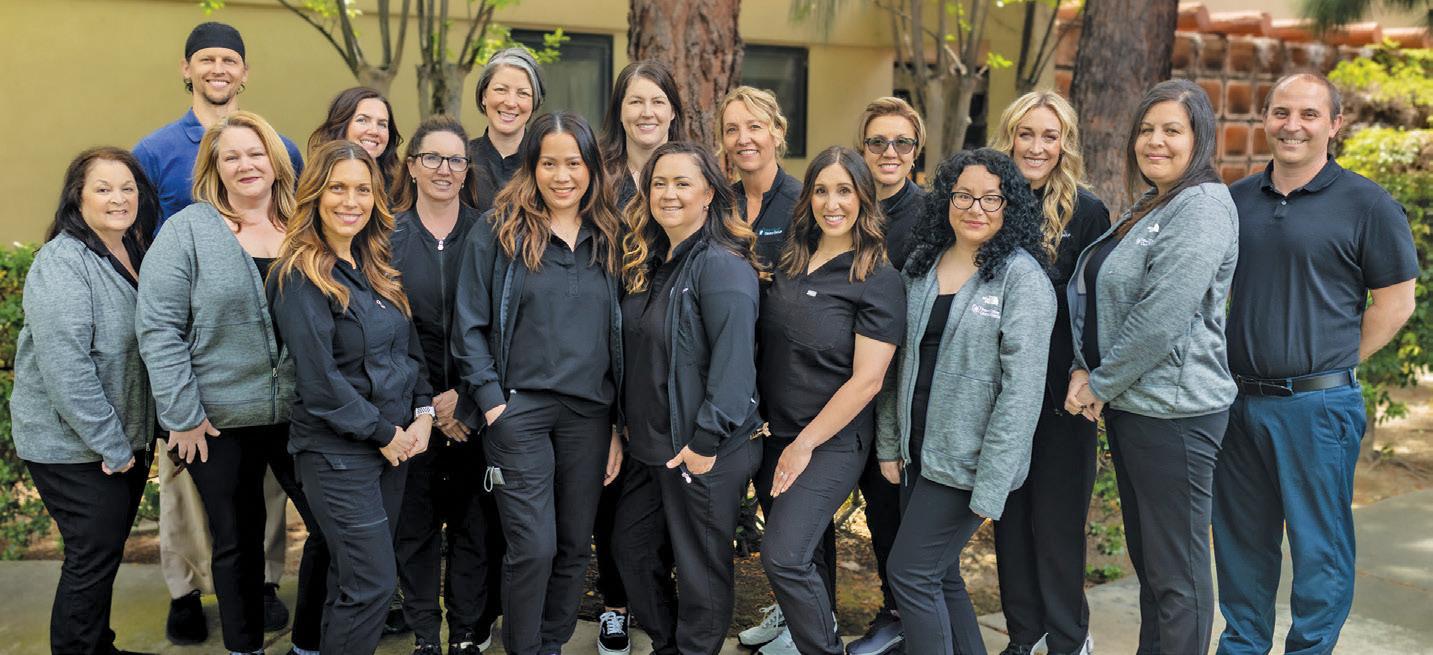


























ches, pains and creaks are not uncommon among the aging population. A lifetime of living can take a toll on the human body, so it’s normal to experience some periodic side effects from all that wear and tear. But some problems may stem from more than normal wear and tear, and in such instances it can be useful to visit a chiropractor.
The Cleveland Clinic notes chiropractors treat an assortment of conditions that affect the nervous system and the musculoskeletal system. Many people prefer chiropractic care as an alternative to treatments that use prescription medication, and it’s worth noting the many conditions that may be treated and alleviated by chiropractic care.
◆ Arthritis: Arthritis is a common condition, particularly among adults age 50 and older. In fact, the Centers for Disease Control and Prevention notes that one in five adults in the United States had arthritis in 2024, while the Global RA Network estimates more than 350 million people have the condition across the globe. The Cleveland Clinic notes normal, lifelong wear and tear is often the cause of arthri-

can be an invaluable solution when individuals suffer from aches, pains and creaks that can affect the human body over time.
tis, and chiropractors can employ various techniques to alleviate the pain associated with this common condition.
◆ Headaches: It might surprise people



unfamiliar with chiropractic care to learn that it’s not uncommon for people with headaches to seek the help of a chiropractor. The Canadian Chiropractic Associa-
tion notes that chiropractic care has been found to be an effective means to treating cervicogenic and tension headaches. Chiropractors may employ various treatments, including soft tissue therapy and acupuncture, to alleviate headache pain.
◆ Lower back pain: Chiropractic care has long been looked to as a means to alleviating lower back pain. The experts at Duke Health note that chiropractors may employ spinal manipulation to treat back pain before offering additional advice, including self-care recommendations, to help patients avoid recurrence. Manual manipulation to improve movement in the spine may be part of chiropractic treatment of lower back pain.
◆ Neck pain: Chiropractors also can help treat neck pain. Many people experience limited mobility in their neck and/ or soreness or joint pain in this area. A subluxation is a slight misalignment of the vertebrae that can contribute to pain, stiffness and reduced function in the neck. Chiropractic care works to restore vertebra to the correct position with the hopes that such a restoration will alleviate pain and improve mobility and function.
For local chiropractic care, visit:
• Delta Spine & Sportcare, 1120 Second St., Brentwood, 925-513-8883.
• Oakley Chiropractic, 3478 Main St., Oakley, 925-625-1881.
– Courtesy of Metro Creative

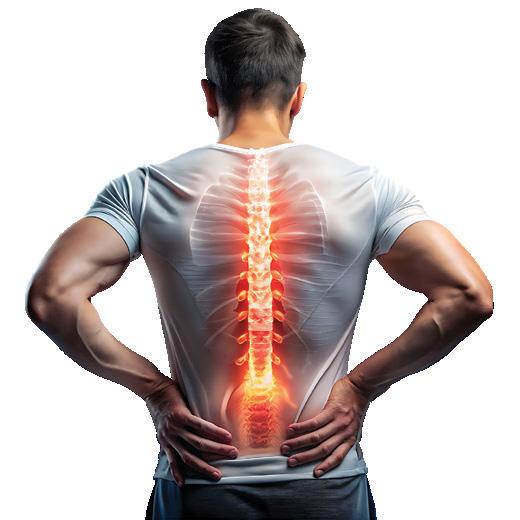












Our digestive system is much more than just a food processor. It’s a powerful engine that fuels nearly every aspect of our health. It breaks down everything we eat into essential nutrients such as carbohydrates, fats, proteins, vitamins, and minerals, which are absorbed and used by our bodies to produce energy, repair cells, and keep us strong.
It also plays a major role in regulating our immune system, metabolism, and other bodily functions. Clearly, taking care of our digestive system is crucial, but how can we take action to do this?
Inside our stomach and intestines live trillions of helpful bacteria known as gut microbiota. According to the Cleveland Clinic, these microbes actively support digestion, protect against harmful pathogens, regulate weight, and help stabilize blood sugar levels.
One effective way to support healthy gut microbiota is by consuming foods that contain probiotics. Probiotics are live, beneficial bacteria that can increase the number of good microbes in your gut, thus helping strengthen

your immune function and keep your digestive system running smoothly.
A major source of probiotics are fermented foods. Across a wide range of cultures, fermented foods have long been valued for both their preservation and health benefits. Fermentation processes not only preserve food but also promote the development of probiotics, along with beneficial enzymes, B vitamins, and omega-3 fatty acids.
Fermented foods are consumed in many cultures worldwide, with yogurt being one of the most common examples. Others include sauerkraut from Germany, kimchi from Korea, miso and natto from Japan, kefir from the Caucasus region, and kvass from Russia and other parts of Eastern Europe.
However, not all fermented foods contain the live probiotics to benefit gut health. Some, such as pasteurized sauerkraut or commercially



to support healthy gut microbiota is by consuming foods that contain probiotics, live, beneficial bacteria that can keep your digestive system running smoothly.
Photo by Adobe Stock
processed pickles, undergo processing steps that kill off the healthy bacteria. Others, such as sourdough bread or baked goods, may have their beneficial bacteria deactivated as they are baked. When shopping, look for labels that say “unpasteurized” or “contains live and active cultures”.
Also, foods kept refrigerated and those with minimal ingredients, such as without added vinegar or preservatives, are also more likely to retain their gut-friendly microbes.
According to John Hopkins Medicine, prebiotics, a non-digestible fiber, is another essential component of a gut-friendly diet. While probiotics introduce the beneficial bacteria to the gut, prebiotics nourish and sustain these bacteria. Foods rich in prebiotics include garlic, onions, bananas, asparagus, beans, and whole grains.
Another benefit of fiber is that it helps move food smoothly through your digestive
system and supports regular bowel movements. There are two types of fiber: insoluble and soluble. According to the Mayo Clinic, Insoluble fiber supports movement through the digestive system and adds bulk to stool, which can be helpful for people who may not pass stool regularly. These are found in popcorn, potatoes, wheat bran, nuts, and leafy greens. Soluble fiber, on the other hand, forms a gellike substance in the stomach that slows digestion and also helps lower cholesterol and blood sugar levels. Good sources include peas, avocados, and fruits such as apples, bananas, and citruses. Beans and whole grains, such as oats and barley, are considered both of these types of fibers. Incorporating more foods containing probiotics and prebiotics into your diet, along with a balanced intake of both types of fiber, can improve your digestive function, support a healthy gut microbiome, and promote overall long-term health.
Improving your gut health doesn’t require significant effort or changes to your diet. Small adjustments, like adding a bowl of yogurt to your breakfast or incorporating more fiberrich fruits and vegetables can help make a big difference over time.
By caring for your gut, you’re supporting your immune system, improving your energy levels, and building a stronger foundation for your overall health.
Vivien Wittstruck 11th grade, Freedom High School
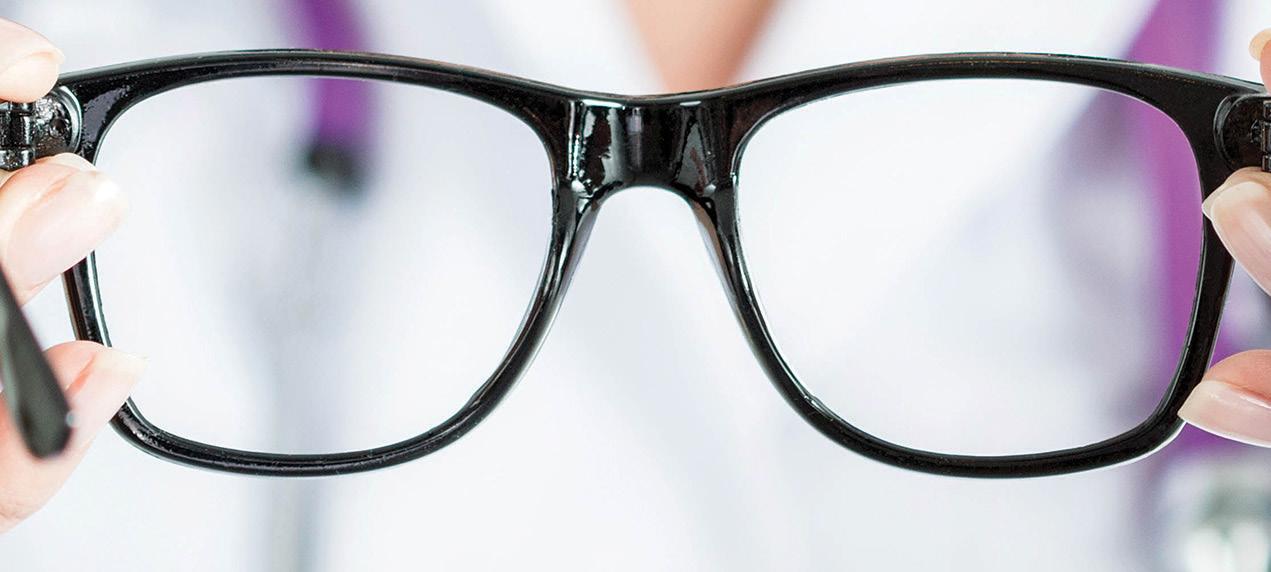





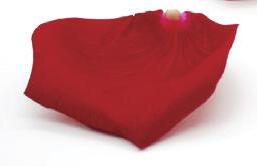


LFV Consulting, led by Anita Ledesma, has been providing affordable HR services in Brentwood for over six years. Specializing in recruiting, payroll, investigative, and administrative services, LFV supports small- and mid-sized businesses as a one stop shop as their HR department. LFV helps businesses save money while offering ongoing support, building trusted relationships. The team works with clients to craft tailored policies, handbooks, and practices. Open weekdays, 10 a.m. – 5 p.m. Contact: 510-461-0190

















